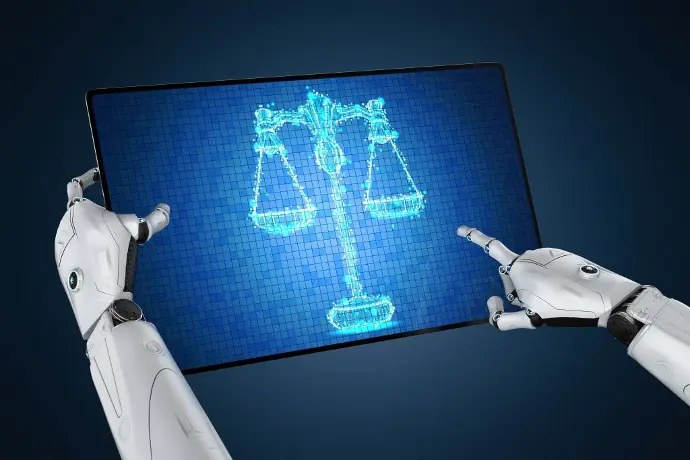Artificial Intelligence and its Impact on Law

Artificial intelligence (AI) is a technology that has revolutionized various industries, including the field of law. AI refers to the ability of machines to mimic human intelligence and perform tasks that require insight and analysis. In the legal field, AI is used to streamline processes, improve efficiency, and make informed decisions. Below, we will explore how AI is used in the field of law and how it is changing the legal industry.
What AI is used for in law firms
AI is used in law firms for a variety of tasks, from legal document generation to legal research and compliance management. Below are some specific applications of AI in the field of law:
- Legal document generation: AI can generate customized legal documents from templates, reducing the time and effort required to draft legal documents.
- Document review: AI-powered algorithms can analyze large volumes of legal documents, contracts, and case law to obtain relevant information, identify patterns, and spot potential issues.
- Legal Research: AI-powered legal research tools can help attorneys find applicable case law and statutes, saving time and effort in searching for relevant legal information.
- Virtual Assistants: AI-powered legal assistants can provide legal information and answer common questions to help law firms handle routine inquiries and provide better client service.
- Legal Chatbots: Chatbots on law firm websites can gather initial information from prospective clients, helping firms assess whether they can take on a case and reducing administrative tasks.
- Compliance and Risk Management: AI systems can monitor and analyze regulatory changes to help organizations comply with ever-evolving laws and regulations, assess risks, and propose mitigation strategies.
- Predictive Analytics: AI can predict case outcomes based on historical data and legal precedents, helping attorneys and clients make more informed decisions about litigation strategies, settlement negotiations, and risk assessment.
- eDiscovery: AI can be used to analyze large volumes of electronic data during the discovery process in litigation, identifying relevant documents and information crucial to legal proceedings.
While AI offers numerous benefits in the field of law, it also raises ethical and regulatory concerns, especially regarding data privacy, bias in algorithms, and the potential elimination of certain legal jobs. Legal professionals should carefully consider these issues when integrating AI into their practices.
How AI will change the legal industry
Artificial intelligence is set to bring significant changes to the legal industry, transforming various aspects of legal practice and operations.
What is the future of AI in the legal sector? What are the challenges? Here's how AI is likely to impact the field of law:
- Increasing efficiency: AI can automate routine and time-consuming tasks such as document review, legal research, and contract analysis, allowing legal professionals to focus on more strategic and complex aspects of their work.
- Reducing costs: By automating tasks and improving resource allocation, AI can help law firms and legal departments reduce operational costs, making legal services more accessible and cost-effective for clients.
- Improving accuracy: AI algorithms can analyze large amounts of data with a high degree of accuracy, reducing the risk of human error in tasks such as document review and data mining.
- Empowering legal professionals: AI tools can act as valuable assistants, helping lawyers and legal professionals perform tasks more efficiently and effectively, ultimately improving their productivity.
Overall, AI is transforming the legal industry by enhancing the capabilities of legal professionals, improving access to legal services, and transforming the way legal work is done, making it more efficient and cost-effective. However, it will also require ongoing adaptation, training, and careful consideration of ethical and regulatory issues.
How AI can amplify efficiency in the legal industry
Major advances in automation and AI are fundamentally transforming the business of law. New law firm CRMs incorporate innovative technology to increase firm efficiency. There is no longer a need to start from scratch – with a single click, LM[AI] can draft fresh, professional email copy for you to edit and review.
Law firms that embrace these technologies will likely be characterized by a seamless client experience, an integrated technology stack, and a data-driven strategic approach, while those that continue to rely on outdated processes risk falling behind firms at the forefront of technology.
